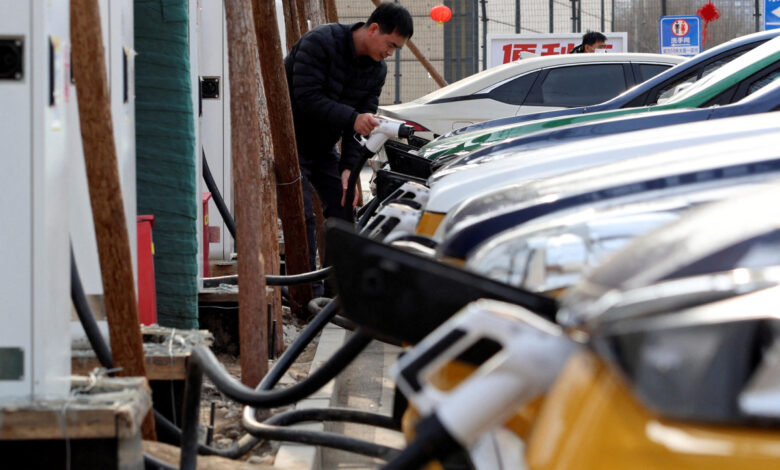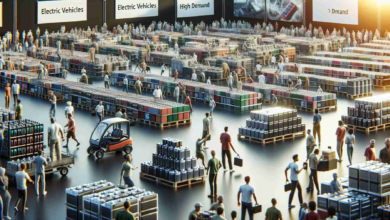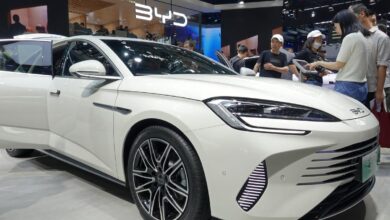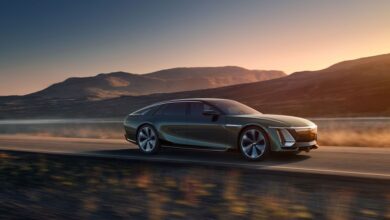Are EU tariffs on Chinese electric vehicles a sign of weakness?

The European Commission is this week expected to disclose the tariffs it plans to slap on Chinese electric vehicles (EVs) over what it says are excessive subsidies – a move likely to prompt stern words and possible retaliation from Beijing.
Issued on:
4 min
Less than a month after Washington quadrupled duties for Chinese EVs to 100 percent, Brussels followed suit – announcing extra tariffs of up to 38 percent.
The reason? To counter China’s official policy of boosting its EV sector. Beijing has poured the equivalent of €25 billion in subsidies into domestic firms and research and development – giving homegrown companies the edge over their rivals based in the EU and US.
The European Commission on Tuesday said in a statement that the battery electric vehicles (BEV) value chain in China had benefitted from unfair help that was causing “economic injury” to BEV producers in the EU.
It ordered a provisional hike of tariffs on Chinese manufacturers: 17.4 percent for the world’s largest electric car maker, BYD, 20 percent for manufacturer Geely and 38.1 percent for SAIC Motor.
Other electric car producers in China would face an average duty of 21 percent, the commission added. Definitive measures were to be officially launched in November.
Showing ‘weakness’
In China, the move was immediately criticised.
“It’s projecting weakness to China,” Bill Russo, the CEO of Shanghai-based consultancy Automobility, told RFI.
“The EU is saying it’s got an industry that is so far behind it has to put a blanket of security around it.”
The Chinese government has reacted furiously. Foreign Ministry spokesperson Lin Jian described the EU measures as “typical protectionism”, saying the tariffs violated market economy principles and international trade rules, while damaging economic cooperation between China and the EU.
China would take “all measures necessary” to defend its own interests, Lin added.
In an interview with Communist Party newspaper the Global Times, Liu Bin, chief expert with the government-affiliated China Automotive Technology and Research Centre, called for reciprocal tariffs on imported cars of 25 percent.
“It’s projecting weakness.”
COMMENT: Bill Russo, CEO of Automobility
Green Deal
Europe’s hunger for electric cars has been heightened by the EU’s Green Deal, which aims at reaching carbon neutrality by the year 2050.
Julia Poliscanova, a director with Transport and Environment, a Brussels-based clean energy lobby group, calls it “one of the most ambitious climate frameworks in the world”.
But, she told RFI, the EU is “at risk of importing some of the critical green technologies” – notably electric vehicles.
“It’s necessary to take certain measures to make sure that this entire energy transition is not imported and does not result in de-industrialisation,” she says, even if that includes “uncomfortable measures such as tariffs”.
“Europe should either double down on its industrial strategy or go home and accept that everything’s imported,” Poliscanova says.
“Europe should either double down on its industrial strategy, including tariffs, or we go home and accept that everything is imported. As a European, I’m not ready to go home yet.”
COMMENT: Julia Poliscanova
The surge in EU tariffs doesn’t have to lead to a trade war. The European market, the second-largest single automotive market in the world, is “really important to China”, says Poliscanova – and even more so since the US virtually closed off its market to the Chinese.
The result may be that Chinese companies come to Europe to invest in local factories, to avoid tariffs and shipping costs.
In fact, world leader BYD is contemplating just that. The Chinese car maker is already planning to build a plant in Hungary, and is considering another one to produce hybrid cars.
Flipping the script
Russo thinks the European approach is still better than Washington’s punitive tariffs on Chinese EV imports.
When China opened up to foreign investment in the 1980s, it was Beijing that put tariffs on imported cars – sometimes as high as 220 percent.
Throughout the next two decades, China allowed Western car companies to come and invest on a large scale, but forced them to transfer the latest technology in joint-venture structures where a Chinese partner always controlled at least 51 percent of the shares.
“Levelling the playing field is is actually a good thing,” says Russo.
Later, investment regulations were relaxed, and after Beijing joined the World Trade Organization in 2001, tariffs were downscaled to 25 percent, shrinking to 15 percent today.
In the meantime, Chinese factories have been able to copy Western technology – and improve on it. “And now in the EV era they’ve surpassed the rest of the world,” according to Russo.
If the stiffer EU tariffs indeed stimulate Chinese companies to localise in Europe, European companies can benefit from it, says Poliscanova – if “our industry also learns” through joint venture partnerships where the know-how would be shared.
If China’s EV technology can be transferred to Europe, “you flip the script and do to China what China did to the world,” Russo agrees. “Then that is a positive move.”



